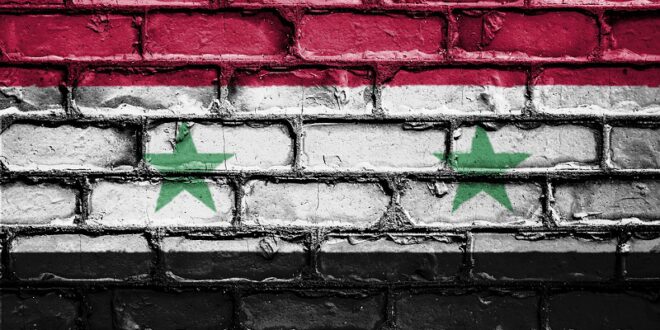The area to the east of the Euphrates in Syria is witnessing an uprising of Arab tribes. This was perhaps expected due to American policies that favored one faction over the other. The uprising is not the result of one incident — the arrest of Abu Khawla, as the Syrian Democratic Forces claims — but rather the outcome of an accumulation of grievances that have built up over the years. A similar situation existed in Iraq following the 2003 American invasion, leading to spiraling violence. The situation was stabilized when Gen. David Petraeus was entrusted with the troop surge in 2007. Despite the fact that the SDF last week vowed to meet tribal demands, the US needs to have a major correction in northeast Syria similar to the surge in Iraq.
Startled by the rise of Daesh, the Americans needed a quick fix. They were also suffering from the failure of their training program for “moderate” rebels, as some US-trained fighters cooperated with extremists. The Kurds were seen as a safe bet. In Washington’s perception, they were a faction that was not prone to indoctrination. Hence, they would not turn their weapons against their benefactors.
Though the SDF is supposed to be composed of Arabs and Kurds, the PYD, which is affiliated with the terrorist PKK, is the main force. And though there are elected local councils running the affairs of people in the northeast, it is the “kadros,” or members of the PYD, who run the show.
The Americans always look for quick fixes. Empowering the Kurds at the expense of the Arabs was the quick fix needed to fight Daesh. But is this deja vu? Following the invasion of Iraq, the US started supporting Shiites over Sunnis. From a pragmatic perspective, the Shiites were the most likely to support the Americans, as they had liberated them from the cruelty of Saddam Hussein. As for moral justification, the US perceived that the Shiites, who were a majority, had been subjugated by Saddam and the Sunni minority, meaning it was their time to rule. By this simplistic logic, the US ruled Iraq.
They made the situation worse with their misguided de-Baathification policy. At the stroke of a pen, 400,000 Baath Party members became outlaws. While Shiites were granted exemptions and were allowed to keep their jobs, the Sunnis were not. This created grievances, from which the fundamentalists greatly benefited.
The American invasion led to a revival of Al-Qaeda. Violence was escalating. However, the US administration realized it was doing something wrong; this was when Petraeus was tasked with the surge that stabilized Iraq. Petraeus realized that empowering one faction over another would not lead to stability — on the contrary, it would feed existing sectarian tensions. He realized that the key to stability was to address people’s grievances. He engaged with the Sunnis through the “awakening.” This was the most effective way to dry out the social incubator of Al-Qaeda.
When members of the Sunni community started refusing to give Al-Qaeda fighters refuge, they had nowhere to go. They became isolated. The awakenings were working well. This was only reversed due to the premature American exit from Iraq and after Nouri Al-Maliki took advantage of this ill-advised withdrawal to renege on all the promises and guarantees given to the Sunnis by the Americans.
Today, we see the same scenario in northeastern Syria. The Arab tribes, which feel subjugated by the SDF, are rising up. The only way to solve this problem is to adopt a more balanced policy between the Arabs and the Kurds. The US should engage with the Arab tribes the same way it engaged with Sunnis in Iraq.
The biggest American concern in Syria is Daesh. Creating grievances from which Daesh will benefit is certainly not the logical way to fight the terrorist group. The best way to fight it is to get to the root of the problem: the grievances that push people to support it. Drying up the social incubator is the most effective and sustainable way to fight terrorism. So, a similar policy to the awakenings should be applied by the coalition in the northeast of Syria.
The US should not fall for the false accusations of the SDF, which is claiming that the Arab tribes are connected with the regime and the Iranians. This is untrue. Deir Ezzor was one of the first provinces that fought Bashar Assad and that suffered from the regime’s brutality.
This definitely does not mean abandoning the Kurds. It means adopting a more balanced policy between the two ethnic components of the community. Adopting such a policy would lead to reconciliation and social cohesion between the Arabs and the Kurds. Assad has been benefiting from Arab-Kurdish tensions.
Now, the US has an opportunity to correct this. Instead of helping the SDF suppress the Arab tribes, soft diplomacy is required. The US should send delegates to engage with the Arab tribes. In parallel, it should put in place governance structures that are representative of the communities, as opposed to today, where the kadros are in control. This is a golden opportunity for the US to win over the Arab tribes and to eradicate terrorism in a sustainable manner.
America needs to reconcile with the Arab tribes that feel disenfranchised in order to make them part of the solution, rather than part of the problem. It is time to revisit the awakening in Iraq, learn lessons from it and apply them in northeast Syria.
 Eurasia Press & News
Eurasia Press & News




